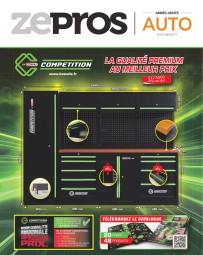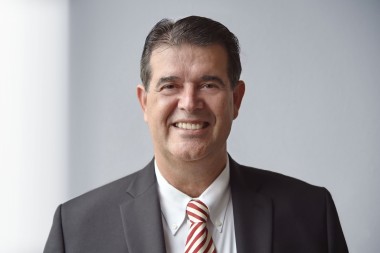Zepros : How is Temot evolving Internationally?
Fotios Katsardis: Ironically, Temot was the main target of mergers and acquisitions: Van Heck, PV Automotive, Trost, Doyen, Unipart, Andrew Page and OVAM. The company was forced to adjust its strategy by abandoning the old "private club" model, its exclusively European orientation and focus on the passenger car market. So we changed, moved to other continents and joined the commercial vehicles sector. At the end of 2018, we will have 76 shareholders (compared to 35 in 2014) in 80 countries and the commercial vehicles division has 46 shareholders (almost none in 2014). Today, our 76 shareholders generate €10.7 billion in sales, 50% of which is in Europe. We will close our accounts this year with growth of 10%. In Europe, Temot has made great progress by being more consistent in terms of purchasing, supply solutions, garage support with intelligent data management and IT solutions.
Is the future no longer going to be in Europe?F.K.: As members of a group LKQ, GPC, PHE (formerly Autodis), Intercars, W&M and others are in a league apart. It’s great for my colleagues to have them in their group, but what about small and medium-sized businesses? Are their interests the same? What do we represent: just another collection or a value creation network for complementary interests? Today, I cannot really say what the future of European groupings is.
Where is concentration happening?F.K.: The concentration of distribution networks will not stop until there is a monopoly risk. Today, only the question of the degree of concentration of the market remains, considering the fragmentation and the potential of each market. Benelux, Denmark, Germany, United Kingdom are already concentrated. On the other hand, there are still good opportunities in France, Italy, Spain and Poland. As long as the three largest groups share less than 60% of the European market between them, mergers and acquisitions will continue. And then, even at this level, they will start changing hands. On the other side, to stay competitive in original equipment, OEMs are pushed into consolidation. Their former oligopolistic positions are under attack from new competitors. They must be global, expand their product portfolio, increase the level of service. It’s inevitable from the point of view of the OEMs, however for the aftermarket it will take time to derive benefits from consolidation. And in this landscape, international groupings are the biggest advocates of global suppliers.
How is access to the vehicle data progressing?F.K.: Manufacturers still hold the key to fair treatment of aftermarket solutions. A very strong position that they will exploit. A strong spare parts market requires a united approach and not a variety of positions. The market is currently unbalanced in terms of legislation and only the legislator can restore the equilibrium. Temot is not currently a member of either Caruso or Carmunication. We are still evolving. Our challenge remains how to create value for members in the digital age. We do not yet have answers to these questions, but we are working on them.Caroline Ridet

